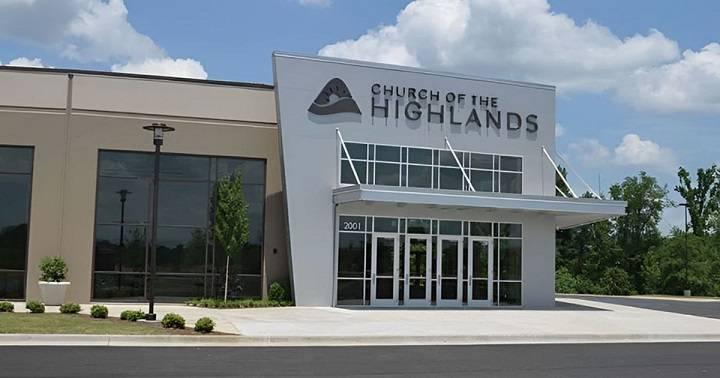Introduction
The Church of the Highlands has emerged as one of the largest and most influential megachurches in the United States, with thousands of members across multiple campuses. Founded by Pastor Chris Hodges in 2001, the church’s rapid growth and widespread influence have made it a religious powerhouse, particularly in Alabama. However, alongside its rise to prominence, the church has faced a series of controversies that have brought its leadership and practices under scrutiny. Allegations of racism, political entanglements, and questions about financial transparency have sparked debates, leading many to ask if the Church of the Highlands truly reflects the values it preaches. In this article, we will delve into the history of the church, examine the controversies it faces, and explore the implications for its congregation and the broader community.
History and Growth of the Church of the Highlands
The Church of the Highlands was founded by Chris Hodges with a mission to create a contemporary Christian church that embraced modern worship practices while staying true to biblical teachings. Its first service in 2001 attracted a modest number of attendees, but the church’s emphasis on community, dynamic leadership, and innovative approach to ministry quickly garnered attention. Over the years, the church expanded its reach through a multi-campus model, opening locations throughout Alabama and even launching an online platform to cater to a global audience.
By 2020, the Church of the Highlands boasted tens of thousands of weekly attendees and had become a staple in the local religious landscape. Its emphasis on small groups, community service, and practical teachings attracted individuals from all walks of life. However, with rapid growth came increased scrutiny, and as the church gained visibility, so did the controversies surrounding it. Despite its success, the church’s internal structure and leadership choices have sparked concerns and ignited public debate.
Controversies Surrounding Church of the Highlands
One of the most prominent controversies facing the Church of the Highlands involves accusations of racism. In 2020, screenshots surfaced showing Pastor Chris Hodges liking social media posts deemed racially insensitive. This incident led to a public outcry, with many questioning the church’s stance on racial equality. While Hodges apologized and expressed regret, the damage was done, with several community organizations severing ties with the church, citing a lack of commitment to addressing racial disparities.
In addition to the racism allegations, concerns about leadership practices within the church have also emerged. Critics argue that the church’s decision-making processes are heavily centralized, with a top-down leadership approach that stifles internal accountability. Chris Hodges has been criticized for maintaining too much control over church operations, leading to questions about transparency and inclusiveness in decision-making. Moreover, the church’s connections to political figures have raised eyebrows, as critics claim the church has blurred the lines between religious leadership and political influence.
Financial Transparency and Criticism
The Church of the Highlands, like many megachurches, has faced criticism regarding its financial transparency. With millions of dollars in donations pouring in each year, the church has come under fire for its lack of detailed financial disclosures. While the church has been praised for its charitable work and community outreach, questions remain about how its funds are allocated, particularly when it comes to executive salaries and church expansion efforts.
Critics have pointed to the church’s lavish facilities and large-scale events as signs of excess, suggesting that more should be done to ensure financial accountability. Comparisons to other megachurches, such as Hillsong and Lakewood Church, have also raised concerns, as these institutions have faced similar criticisms regarding the use of funds. The lack of transparency has led some congregants to question whether their donations are being used responsibly, while others remain loyal to the church’s vision.
Impact on Congregation and Community
The controversies surrounding the Church of the Highlands have had a significant impact on its congregation. For many long-time members, the accusations of racism and lack of transparency have been a source of disappointment and disillusionment. Some congregants have chosen to leave the church, while others remain, hoping for reform and a return to the church’s original values.
In terms of community outreach, the Church of the Highlands has maintained a strong presence despite the controversies. The church is well-known for its Serve Days, where members volunteer in their communities, and its various outreach programs aimed at helping those in need. However, the effectiveness of these efforts has been called into question in light of the allegations against the church’s leadership. Some community members have expressed concern that the church’s good works are overshadowed by its internal issues, and that more needs to be done to address the underlying problems.
Conclusion
The Church of the Highlands, once hailed as a beacon of modern Christianity, now finds itself at a crossroads. The controversies it faces—ranging from accusations of racism to questions about financial transparency—have cast a shadow over its mission and its leadership. While the church continues to grow and maintain a loyal following, these issues have undeniably tarnished its reputation. Whether the church will be able to recover and regain the trust of its members remains to be seen, but one thing is clear: the Church of the Highlands must address these concerns head-on if it hopes to restore its standing in the community.




